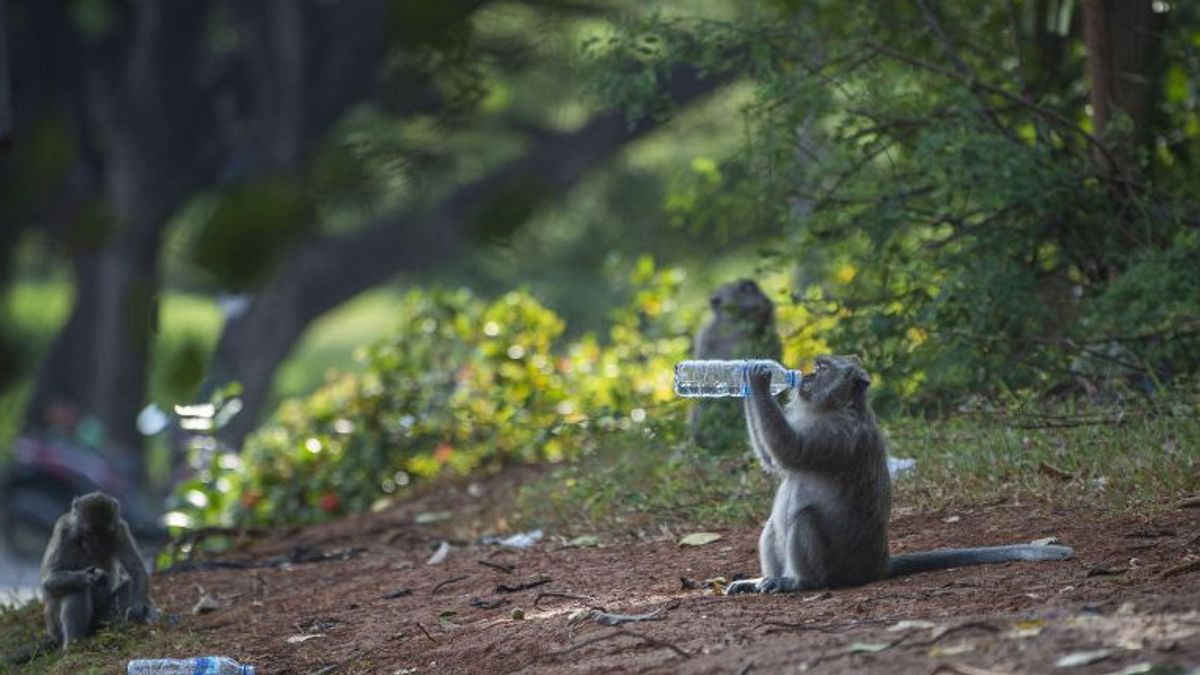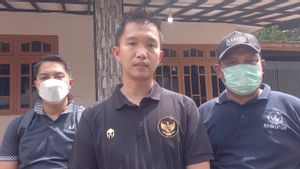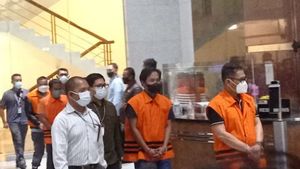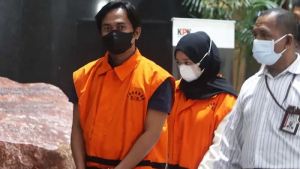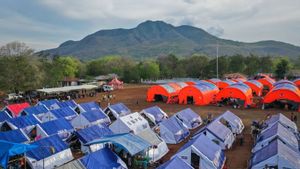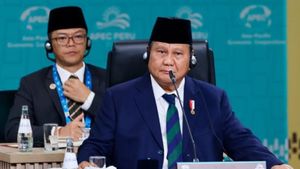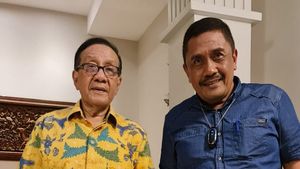JAKARTA - The Natural Resources Conservation Agency (BKSDA) of DKI Jakarta Province revealed that the macaque long-tailed monkey species that visited luxury housing in Pluit, Penjaringan, North Jakarta was tempted by human food.
Natural Resources Conservation Agency (BKSDA) officer, Aripin, said that human food that is sometimes stored in the homes of Pluit Karang Asri residents as offerings or leftovers are thrown into the trash has the potential to attract the attention of macaque herds.
"I'm afraid that if you take food from the community, your habitat will also be disturbed here. In fact, they have food here, including Pidada and Nipah mangroves", said Aripin at the Muara Angke Wildlife Sanctuary (SMMA), North Jakarta, Antara, Wednesday, 29 June.
According to Aripin, perhaps the residents of the housing did not intend to give the food to Makaka.
However, the distance between the nature conservation area and the proximity of human settlements allows the long-tailed monkeys to walk or swim in search of food.
Makaka, one of the native species inhabiting the Muara Angke Wildlife Reserve area actually has native food according to its habitat in the form of Pidada and Nipah mangroves.
The habit of looking for human food is thought to be because people often feed them when they meet them.
For this reason, the BKSDA has issued an appeal not to feed the monkeys there so that this action does not affect their original habit of consuming Pidada and Nipah.
"Always on the side of the road when many people give food, he (then) gathers there too much. So we urge people not to give food", said Aripin.
Aripin confirmed that the number of mangroves and nipa palms in the Muara Angke Wildlife Sanctuary is sufficient for the consumption of the macaque herds in the conservation area, which are estimated to number between 60-100 individuals.
But fruits such as bananas, and apples, from the community, are also thought to be attractive to macaques. If it is given, they will rush to approach even on the side of the road.
Possibly, the Makaka who visited the luxury housing in Pluit was one of them from SMMA. But now, according to Aripin, the long-tailed monkey seems to have settled in the Pluit Karang Asri housing estate. "If I see it in Block 10 (Pluit Karang Asri Street Blok 10 RW 013, Pluit Village). There is one of them (gathering) there", he said.
"I don't know why, maybe because they have legs, walk, or on the river bank, swim", said Aripin.
In the future, because they are worried that the macaques will continue to gather in that place, BKSDA advises them not to be fed. In addition, if there are trash cans, they must be sorted so that there are no food scraps.
"For fear that the trash cans will be visited by macaques, then everything will be scattered because they are looking for food", he said.
Meanwhile, representatives of the Indonesian Nature Rehabilitation Initiation Foundation (YIARI), Itang, said that he had found 26 macaques in Pluit Karang Asri.
"We have checked the area for population calculations, based on data there are 26 individuals in Pluit Karang Asri", said Itang.
Whereas the long-tailed monkey which has the Latin name "Macaca Fascicularis" has its own habitat. Generally can be found in coastal forests or mangrove forests and mountains with an altitude of 1,300 meters above sea level.
As for the macaque feed in the Muara Angke Wildlife Sanctuary, YIARI does not yet have real data regarding the amount.
However, based on the direct assessment method, the feed was considered sufficient for the macaques.
VOIR éGALEMENT:
"An appeal, from the side of the trash can. Don't let the trash can be open, it must be closed, and also don't feed the monkey", said Itang as well.
SMMA is a conservation area in the Kapuk Muara Village, Penjaringan, North Jakarta. However, from a Google map, it can be seen that the area is also opposite the Pluit Karang Asri housing complex with the Angke River flow restricted.
The English, Chinese, Japanese, Arabic, and French versions are automatically generated by the AI. So there may still be inaccuracies in translating, please always see Indonesian as our main language. (system supported by DigitalSiber.id)
